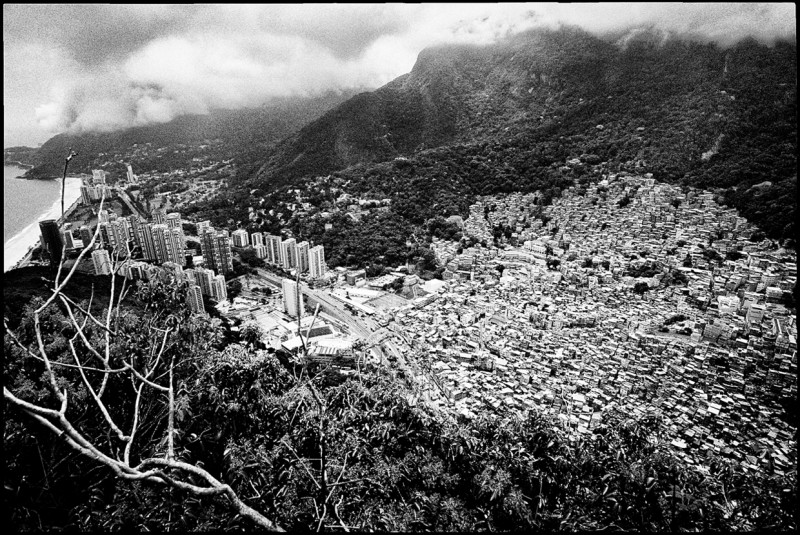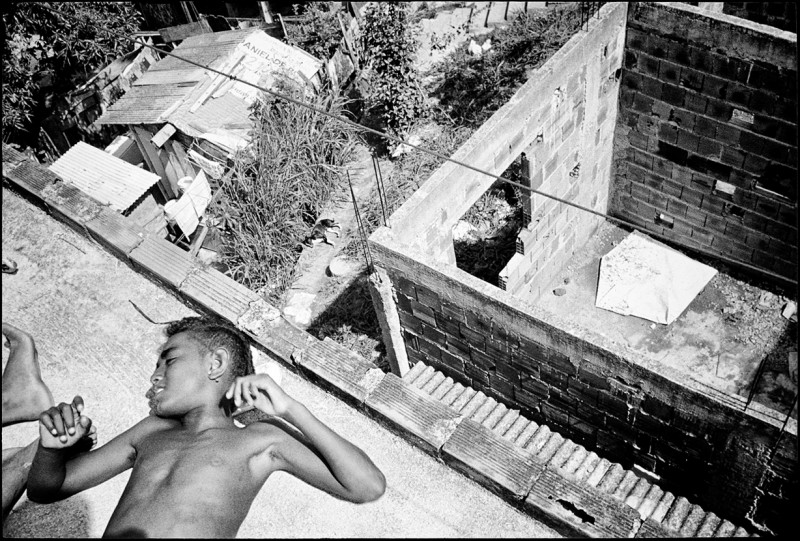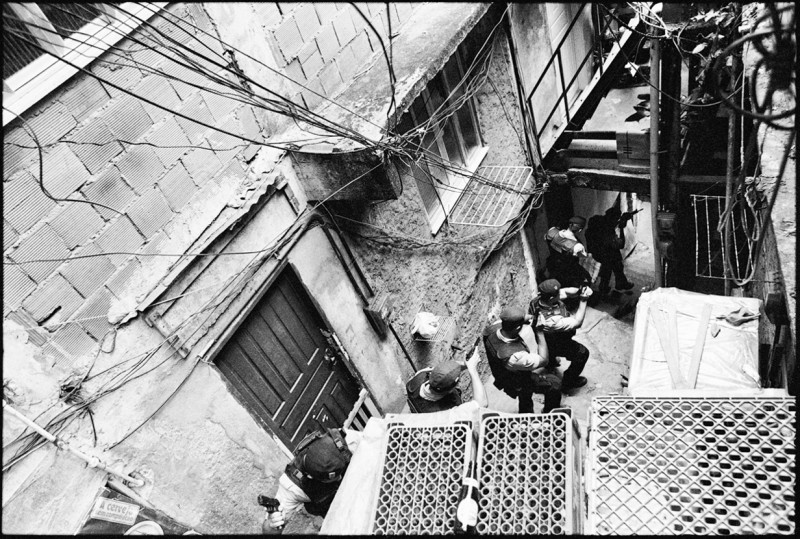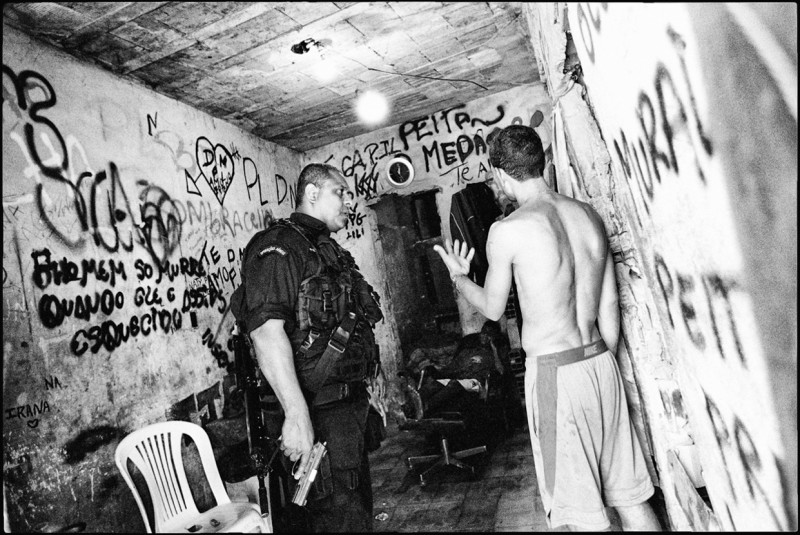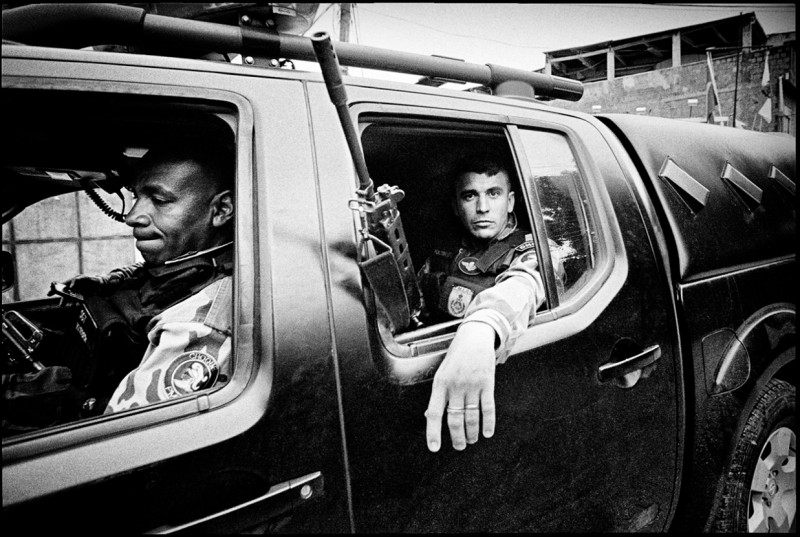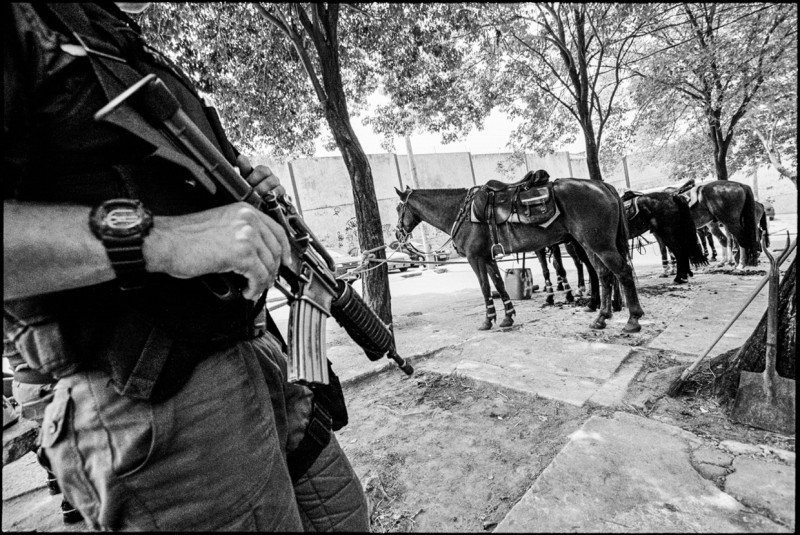Pacificação
Pacificação
Felix Kleymann
March 25, 2016
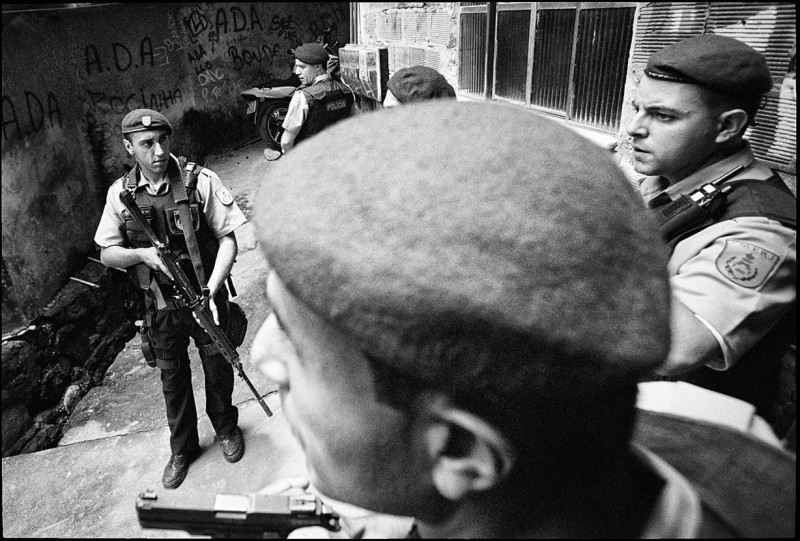
Ever since, drug trafficking, poverty, and violence have been a part of the residents’ everyday lives, whereas living conditions in close-by Copacabana and Ipanema have always been branded by abundance and extravagance. Up until now, Rio de Janeiro has consisted of two disparate and completely separate areas. For years the Brazilian government neglected the high crime rate and the drug gangs’ terrorist regimes. Rio is one of the cities with the highest murder rates in the world. Since 2009, when Rio de Janeiro was elected to host the World Cup in 2014, and the Olympic Games in 2016, public safety has become an important issue.
The pacification program is one of Brazil’s most urgent challenges initiated by the Department of Homeland Security. Since Rio’s police are regarded as particularly corrupt, the citizens of the favelas have little trust in them. To counter this, the “Unidade de Policia Pacification” (Pacification Police Unit), the UPP, consists of young and specially trained police officers. The shanty towns primarily affected by the process of pacification are those located close to the city center. This results in a shift of criminality to the more remote favelas in the north and east, with the consequence of renewed battles for the territorial supremacy in those areas.
In addition to the pacification program, social projects are being organized, which are only supported to a small extent by the UPP and the government. Rather, the projects are sponsored by individuals. This happens irrespective of the state-ordered pacification program. The Brazilian government is focussing on purging the favelas with military operations. The goal is to reincorporate the new communities into mainstream society and markets, after successfully recapturing and stabilizing them.
The pacification program has positive effects, not only for the economy and public security, but also for favela residents. The enormous and essential changes, however, imply great challenges for those who were previously the underdogs.”
Felix Kleymann+-
Felix Kleymann was born in Recklinghausen in 1984. After graduating he did his diploma with an emphasis on photography at the Fachhochschule Dortmund in 2013. The Pacificação series constituted his final thesis. Since then, Kleymann is working as a freelance photographer. More

